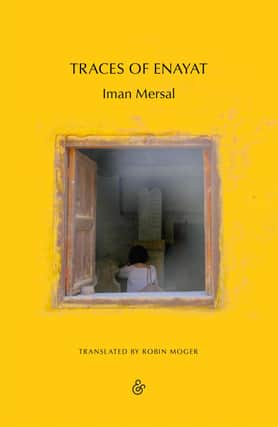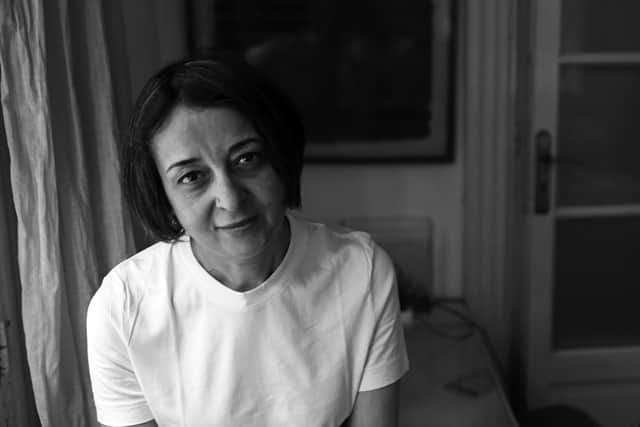Book Club: Memory of a writer whose fate was to be a woman in a hostile environment


When Mersal stumbles across Love and Silence, a novel by Enayat al-Zayyat, in the nineties, she is immediately hooked. She finds out that the young writer of this great – yet forgotten – novel killed herself shortly after her book was rejected by publishers. Mersal begins to research the writer, interviews family members and friends, and reconstructs the afterlife of Enayat in the media. A remarkable portrait emerges of a woman artist striving to live on her own terms.
First published in Arabic in 2019, this wonderfully digressive biography received the prestigious 2021 Sheikh Zayed Book Award, making Mersal the first woman to win its Literature category.
Advertisement
Hide AdAdvertisement
Hide AdSheffield publisher And Other Stories publishes Traces of Enayat in the UK on 3 August 2023 and you can buy a copy from Sheffield independents Juno Books, La Biblioteka and Rhyme and Reason or online from the publisher’s website.


Extract from Traces of Enayat:
I noticed that Azima would talk about ‘Enayat’s passing’ but never once used the word suicide, and though I was on the verge of putting it to her, I decided it would be too painful. Instead, I asked her the question that had been on my mind since we’d started talking. Could she put me in touch with Enayat’s son? Maybe she could talk to him about my project and see if he’d be prepared to meet me when I visited Egypt in the summer. The silence dragged out for almost a minute, then Azima said, ‘Abbas died in 1983, in the prime of his youth.’
My hands, quite literally, began to shake. Any desire I had to know more evaporated. There are things that always deserve silence, but I had to force that heavy weather aside and end the conversation on a gentler note. Azima must be suffering. Who knows what grief and pain she had endured and come through in the wake of her sister’s death?
I’d read somewhere that every suicide leaves a minimum of six people to deal with the trauma of accepting and understanding what has happened. They are usually family or friends, though the circle of those affected can extend to include colleagues and neighbours. Suicide is not simply a death: its wake is dyed with guilt and shame and a confusion over how to establish respon- sibility for, or minimise, its impact. How many times had Nadia said, ‘Maybe if I’d been by her side on 3 January 1963, if I’d been able to console her, it never would have happened’?
Advertisement
Hide AdAdvertisement
Hide AdI went out. Not a soul in the street and one below zero felt positively warm after the long winter. But still below zero: the snow clung on in slippery patches, mirrored sheets that could unbalance anyone who crossed them. As I walked, picking my way between the mirrors, I thought about what had happened to Abbas. He’d been six when Enayat had died. Had they ever shown him the note that Enayat had left? I do love you, it’s just that life is unbearable. Forgive me. I couldn’t ask Azima a question like that. I had wanted to ask Abbas if he remembered refusing to call her Mama. If he had remembered, then he surely would have hated his father for it, would have hated himself. A true orphan.
1983! So he had died at roughly the same age as his mother. Was it as simple as inheriting her depression and misfortune, or was it just coincidence: two quite different fates that fell out along the same lines?
I got home to find several missed calls from Mourad’s school, and when I called them back, was told that he’d slipped on the ice and injured his leg. The school nurse was looking after him, but the cut would need treatment at the hospital.
As the surgeon tied off the last of the eight stitches in Mourad’s knee I was feeling furious. A great rage at myself.
Advertisement
Hide AdAdvertisement
Hide AdBetween my first conversation with Azima al-Zayyat in March and 24 May, when we next spoke, I was writing a piece entitled ‘On Motherhood and Violence’ for Makhzin magazine. It started as a brief, academic overview of the status of motherhood in some Western feminist discourses, but the theoretical ques- tions raised led me to my own experience with motherhood and its guilt, terror, selfishness and conflict. And although I was completely absorbed in this project, Enayat never left my mind. It was as though she was keeping me company, and in a new light.
I reread the novel and the published extracts from her journal.
In the novel, Najla pays a visit to her cousin, Sharifa, to con- gratulate her on the birth of her daughter. Najla wonders:
How is it, that for all of human history, women have been men’s possessions, less than them, even though they give them life and mother us all? Why don’t the devastating agonies that sweep their bodies as they bear each new child into the world cause men to be kind to them, or tender?
Advertisement
Hide AdAdvertisement
Hide AdQuestions that must have preoccupied Enayat when she became a mother herself, as she returned to her father’s house in Dokki, leaving her marital home behind and holding in her arms a child on the verge of walking.
I pictured Abbas asleep at her side as she wrote:
Woman is content with her role as mother and life-giver, and thinks little of the years lost raising children: a lifetime lost to a life without work. As she comes face to face with the newborn, work fades to noth- ing. But am I the same as Sharifa? Just a mother who conceives and labours and births, gladly building new generations with her offspring? Impossible. I want to work.
But the work Najla wants is generative too: she wants to give to the world something new and of herself. She decides to return to drawing, to submit her portfolio to the College of Fine Arts. As though the angst felt by the childless Najla contains something of Enayat’s inner conflict between her love for her son and her desire to catch the last carriage of that departing train: to take a job at the German Archaeological Institute and write the novel.
Enayat’s relationship with Abbas did not exist in isolation from the complexities of her life: a woman of twenty-three or twenty-four, mother, writer and divorcee, with a son who spent half his time with her and half with his father. A son who would return to her arms freighted with love and damage. It must have hurt her deeply when he refused to call her Mama.
In one of the journal extracts, she writes:
Advertisement
Hide AdAdvertisement
Hide AdWe own no one and no one owns us.Life changes, people change, nothing stays the same. Even children . . .Who took shape within us and fed on our blood. Whose price was the terrible agonies of labour.Even that child who inherited some of my nature, whose features are my own.Even him, whose smile is my smile,whose little toe is bent, like mine.Even him, whom I fed with my milk, my love.Even him, for whom I stayed awake so he might sleep. Even he changes.Even he forgets me.He has seen nothing of life.He is still on the shore.
What will he do when he finds himself in it up to his knees?Will he be lost to me forever?